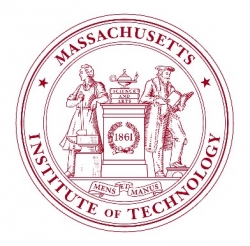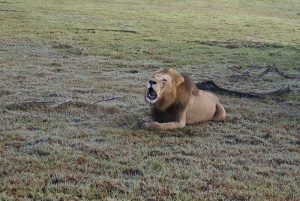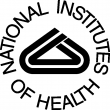Friday, March 25. 2011

Change in IEEE Author Policy:
Impact on MIT Faculty Open Access Policy
Posted March 23rd, 2011 by Ellen DuranceauIn January 2011, the IEEE changed a key author policy, discontinuing the right authors had to post the final published version of their IEEE articles on the web. This alters what authors can do with their work and how the MIT Faculty Open Access Policy can be implemented for these papers.
The policy change is not retrospective: papers posted before January do not need to be taken down from the web. But from January on, authors may post only their accepted manuscripts, not the final published version of their articles.
As a consequence of this policy change, the MIT Libraries can no longer copy the final published articles from IEEE’s database and post them in MIT’s research repository, Dspace@MIT, as we have been doing since the faculty passed their Open Access Policy.
Instead, the Libraries are now requesting that authors submit their final accepted manuscripts of IEEE papers for deposit under the Policy. Papers can be uploaded through a simple web form and will appear in the Open Access Articles Collection. • IEEE’s policy
• MIT Faculty Open Access Policy
• Ellen Duranceau, MIT Libraries Program Manager, Scholarly Publishing & Licensing, x38483.
The IEEE policy change is a good thing, a blessing in disguise.
Self archiving, by MIT authors, of MIT authors' final, refereed accepted drafts, is what the MIT policy and procedure should have been all along.
That's the procedure that will work, and the policy that can and will scale to all other universities, funders and publishers worldwide.
Mandated self-archiving of authors' final drafts is also what will usher in universal Green OA and eventually also publisher downsizing and transition to Gold OA, with journals reducing their services and costs to just overseeing peer review -- offloading all access-provision and archiving onto the worldwide network of mandated institutional repositories.
That will effectively turn the authors' self-archived refereed, revised, accepted final drafts into the canonical version of record.
If MIT had kept relying on importing the publisher's PDF, the MIT policy and procedure would not have been smoothly scaleable to the rest of the world's universities, funders and publishers, Green OA would be needlessly delayed and hamstrung, the current status quo and its modus operandi would have been locked in, and any eventual cost-cutting, downsizing to peer review alone, and transition to Gold OA would have been made far less likely. Harnad, S. (2011, in press) Gold Open Access Publishing Must Not Be Allowed to Retard the Progress of Green. Open Access Self-Archiving. Logos
Sale, A., Couture, M., Rodrigues, E., Carr, L. and Harnad, S. (2011, in press) Open Access Mandates and the "Fair Dealing" Button. In: Dynamic Fair Dealing: Creating Canadian Culture Online (Rosemary J. Coombe & Darren Wershler, Eds.)
Harnad, S. (2010) The Immediate Practical Implication of the Houghton Report: Provide Green Open Access Now. Prometheus 28 (1): 55-59.
Harnad, S. (2010) Open Access to Research: Changing Researcher Behavior Through University and Funder Mandates. In Parycek, P. & Prosser, A. (Eds.): EDEM2010: Proceedings of the 4th Inernational Conference on E-Democracy. Austrian Computer Society, 13-22
Harnad, S. (2010) No-Fault Peer Review Charges: The Price of Selectivity Need Not Be Access Denied or Delayed. D-Lib Magazine 16 (7/8).
Harnad, S. (2009) The PostGutenberg Open Access Journal. In: Cope, B. & Phillips, A (Eds.) The Future of the Academic Journal. Chandos. Stevan Harnad
American Scientist Open Access Forum
EnablingOpenScholarship
Sunday, March 13. 2011
 
Emily Chung, in CBC News, writes: "No more free access to Canadian science journals: Privatization of NRC Research Press means public, scientists now pay $10 per article" The solution to this non-problem is simple: If the authors of the articles that are published in the 17 NRC journals want to maximize the uptake, usage and impact of their findings (and all researchers do!), all they have to do is self-archive the final, refereed draft in their research institution's open-access repository immediately upon acceptance for publication.
And if their research institution and research funder want to make sure that is done, all they have to do is mandate self-archiving, as many institutions and funders worldwide are beginning to do -- **including the NRC** (and 12 other institutions and funders in Canada).
See the Registry of Open Access Material Access Policies (ROARMAP):
Canadian Breast Cancer Research Alliance (CBCRA)
Canadian Cancer Society (CCS)
Canadian Health Services Research Foundation (CHSRF)
Canadian Institutes of Health Research (CIHR)
Concordia University
Fonds de la recherche en sante Quebec (FRSQ)
Heart and Stroke Foundation of Canada
Michael Smith Foundation for Health Research (MSFHR)
**National Research Council (NRC) Canada**
Ontario Institute for Cancer Research (OICR)
Queen's University Library Faculty
University of Calgary: Library and Cultural Resources
University of Guelph Faculty of Environmental Sciences
Thursday, March 10. 2011
  ROARMAP ROARMAP
The ROARMAP Registry of Green Open Access Mandates has been upgraded: http://roarmap.eprints.org/
With University of North Texas's mandate (approved by UNT Faculty Senate March 9 2011) there are now 193 Green OA Mandates by institutions and funders worldwide (plus 75 thesis mandates).
This would be an opportune time for you to register your mandate, if it is not registered already.

|









